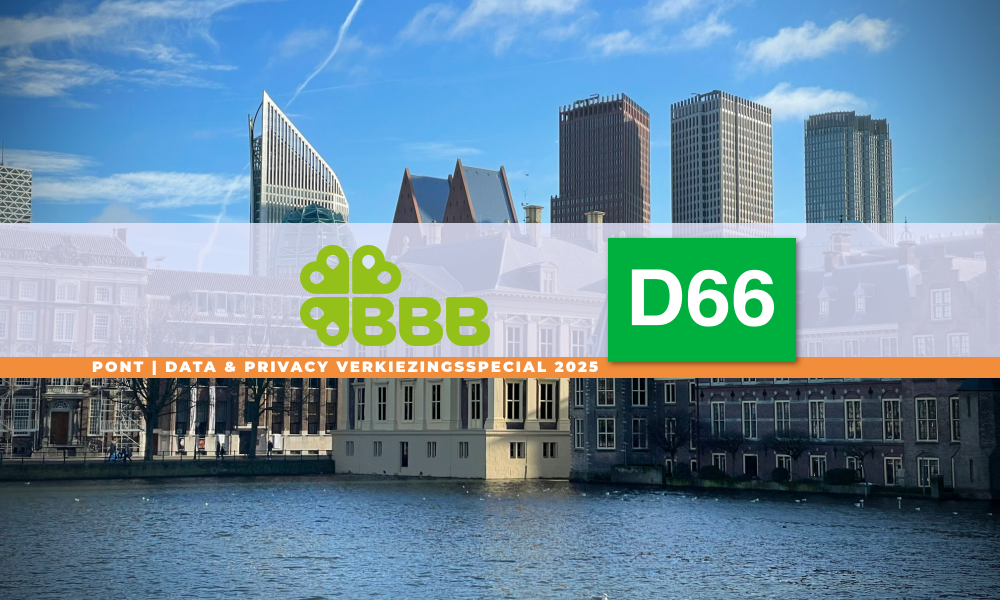Ahead of the Lower House elections on Oct. 29, in this election special we compare the positions of the eight major parties according to the polls. In this edition, we juxtapose the digitization agendas of BBB and D66.

Disclaimer: the comparison is based solely on the election manifestos, not other statements by party leaders or group members.
Both parties want a government that serves citizens better and more understandably, but place different emphases.
BBB advocates simplicity and accessibility, with special attention to people with disabilities. Digital counters should be easily accessible and vital infrastructure should remain in Dutch or European hands as much as possible. Failure of ICT projects must be systematically tested and new systems must run on open source and open standards.
D66 opts for stronger central direction. The motto is "Boss of your own bits." The Netherlands must become digitally independent of American and Chinese tech companies. A Minister for Technology & Innovation will have the coordinating role in this, with the government also acting as a launching customer for European alternatives. Accessibility is a core value, and the human dimension must be legally guaranteed.
Both BBB and D66 see both the opportunities and risks of AI, but they place different emphases.
BBB wants to invest in a Dutch AI network and even an AI factory in Groningen, with Defense also playing a role. Government application should only be allowed under human supervision and with an emphasis on comprehensibility and privacy. Risky applications such as facial recognition are restricted or banned; deepfakes without permission are punishable.
D66 sees AI as a strategic key technology and wants the Netherlands to become a leader in values-driven and responsible AI. Human control ("human-in-the-loop") is always required. The party wants strict supervision and clear rights for citizens, such as copyright to one's own face and voice. Access to semiconductors and software is seen as a strategic issue, and misuse of AI - such as deepfakes - is curbed.
Cybersecurity is a priority for both parties, though their strategies differ.
BBB advocates targeted investments, giving Dutch companies priority in public projects. Cyber awareness should be widely promoted: education starts at elementary school and continues through secondary school and college. European rules such as NIS2 will be implemented without additional national burdens. Privacy is strengthened through independent regulators and young people get extra protection, including through age verification.
D66 sees digital security as a basic need. The party is committed to prevention, digital policing and tougher penalties for cybercriminals. Supervision of large tech companies will be greatly expanded, and the police will have more capacity for digital detection. In addition, D66 wants social measures such as media education against online deception. Children and the vulnerable will get extra protection against harmful algorithms and deepfakes.
In the area of privacy, both parties have firm ambitions, but with different perspectives.
BBB emphasizes digital sovereignty. Government data must remain in Dutch or European hands, fundamental digital rights will be enshrined in the Constitution, and privacy watchdogs within institutions will have a strong role. Trade in personal data and facial recognition will be largely banned.
D66 introduces the principle "Boss of your own bits." Citizens must have more control over their data and even a veto on use and processing. Profiling based on ethnicity or mental health will be prohibited by law. Privacy-by-design will become mandatory for AI, apps and data systems, and citizens will have a strong right to oblivion - including children.
Finally, the parties differ in their views on digital innovation.
BBB strongly links digitalization to national autonomy. A National Investment Bank for Innovation should support SMEs and strategic sectors, with an emphasis on open source and cooperation between government, companies and knowledge institutions. Fiber optics and regional digitization are prioritized. Innovations are tested for comprehensibility and human scale.
D66 places digitization in a broader social framework. Again, there will be a National Investment Bank, but for the major transitions: climate, digitization and circular economy. The government will organize knowledge clusters around key technologies such as AI, chips and cyber resilience. Innovation policy should not only generate economic growth, but also strengthen social mobility and European values.
This article was created (in part) using AI, based on [BBB: BBB Levert and D66: It Can Be Done].

